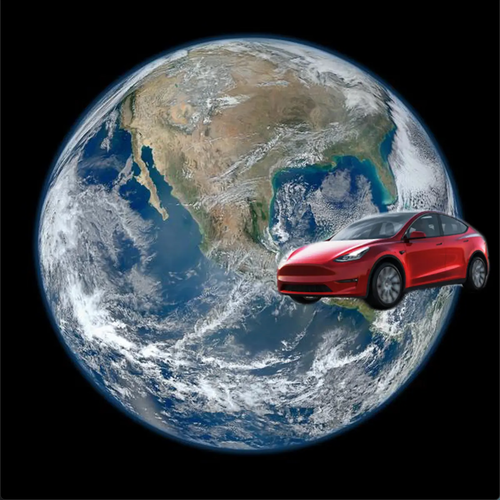California Votes To Ban New Gas Vehicles By 2035 In Push For EV-Utopia
The California Air Resources Board (CARB) voted Thursday on a groundbreaking measure to approve a ban on new vehicle sales with internal combustion engines. It’s a move by the progressive state to combat climate change. By 2035, the state would only allow EVs – electric vehicle sales.
The plan is heralded as a major acceleration toward EV adoption to tackle what many leftist lawmakers in the state believe the world is rapidly descending into a climate disaster because of increasing carbon emissions:
“It’s ambitious, it’s pioneering, it’s what we must do if we’re going to leave this planet better for future generations,” Lauren Sanchez, senior climate adviser to Gavin Newsom, the governor of California, said Wednesday on a conference call.
California appears to be leading the rest of the US (and possibly the world) in the quest for EV-utopia:
“California will now be the only government in the world that mandates zero-emission vehicles. It is unique,” said Margo Oge, an electric vehicles expert who headed the Environmental Protection Agency’s transportation emissions program under Presidents Bill Clinton, George W. Bush, and Barack Obama.
CARB’s new rule is expected to require all new vehicles sold in the state by 2035 to be 100% electric. Currently, sales are about 12%. By 2026, the rule would require the state to have at least 35% of new passenger vehicles produce zero emissions and then 68% in 2030.
“The climate crisis is solvable if we focus on the big, bold steps necessary to stem the tide of carbon pollution,” Newsom said in a statement.
The goal to increase the US’ largest EV market from 12% of all new sales to 100% looks pretty ambitious, considering China controls all the battery-making rare earth metals. Also, global supply chains are being rejiggered in a multi-polar world as US companies pull out of China and shift operations to friendlier countries.
Autotrader analyst Michelle Krebs told Axios that CARB’s new rule doesn’t sound “realistic” given “there are some hurdles:”
“Whether or not these requirements are realistic or achievable is directly linked to external factors like inflation, charging and fuel infrastructure, supply chains, labor, critical mineral availability and pricing, and the ongoing semiconductor shortage.
“These are complex, intertwined and global issues well beyond the control of either CARB or the auto industry,” John Bozzella, CEO of the Alliance for Automotive Innovation, which represents the major automakers on policy issues, said in a statement.
Another issue is cost — as The Epoch Times explained, only “the top tier of society” can afford new electric vehicles. As The Verge reported:
“One of the major barriers to mass adoption of electric vehicles is cost. EVs are just way too expensive, with the average price hitting an all-time high earlier this summer of $66,000. That’s disappointing because the auto industry has always promised that prices would come down as EV battery packs became more efficient to manufacture.
“But even more disappointing is the rate that EV prices are increasing as compared to their gas equivalents. According to a recent analysis by car shopping database iSeeCars, electric car prices saw a year-over-year increase of 54.3 percent while gas-powered cars were up just 10.1 percent.”
And so, what does that mean for the bottom tier of society who can’t afford new, expensive EVs? Well, as Epoch’s John Seiler opined:
The Bottom Tier of car owners will be those who can’t afford new EVs, or even EVs a couple of years old. They will be forced to buy much older EVs at high prices, with mechanical problems that will strain family budgets even more.
Or they will be forced to keep old, gas-powered flivvers running much longer than expected.
One can only imagine what the power demand situation in the state would look like with millions of new EVs on the road, requiring daily charges — if lawmakers in the state fail to beef up the already fragile grid with clean nuclear power generation to ensure the transition to a low-carbon economy, then the reliance on unreliable solar and wind could derail Newsom’s future EV-utopia.
Tyler Durden
Thu, 08/25/2022 – 22:00
via ZeroHedge News https://ift.tt/GN6ZO71 Tyler Durden
